Today is Gabriel Fauré's 172nd birthday. Fauré created his own unique style by purposefully avoiding the composition of "grand music" (Symphonies with loud and triumphant sounds). Instead, Fauré, a French composer, wrote subtle yet powerful music. In this article, I will write about the life of Gabriel Fauré and share 10 of his compositions with my own commentary (I am taking 7 of the pieces I included in my weekly7 7 Pieces by Gabriel Fauré YOU Should listen to This Week, but I will create different commentary). Here's a little about Gabriel Fauré:
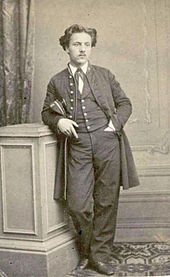
The Life of Gabriel Fauré
Gabriel Fauré was born on May 12th, 1845 in Pamiers, Ariège, Midi-Pyrénées, the youngest of 6 children. At the age of 4, Fauré was sent to live with a foster mother until his father was appointed director of the École Normale d'Instituteurs, a school that trained teachers. Here, there was a chapel in which Fauré could experiment with music, as taken by an account from later in his life. . .
I grew up, a rather quiet well-behaved child, in an area of great beauty. ... But the only thing I remember really clearly is the harmonium in that little chapel. Every time I could get away I ran there – and I regaled myself. ... I played atrociously ... no method at all, quite without technique, but I do remember that I was happy; and if that is what it means to have a vocation, then it is a very pleasant thing.
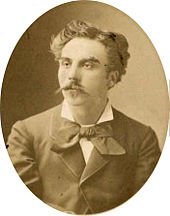
When Saubiac, of the National Assembly, heard Fauré's talent, he recommended that Fauré's father send Fauré to École de Musique Classique et Religieuse, a conservatory being set up by Louis Niedermeyer in France. After a year of contemplation, Fauré's father agreed. At the age of 9, Fauré was sent to study in Paris. Here, Fauré, would be exposed to mainly religious music until Louis Niedermeyer died in 1861. At this point, Camille Saint-Saëns took over the piano department, and exposed students to modern composers such as Schumann, Liszt, and Wagner.
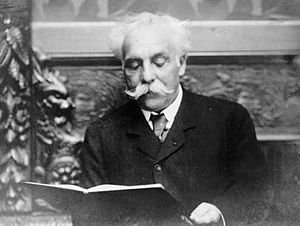
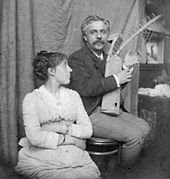
At this time, Fauré was making a good deal of money from his compositions due to the fact that his publisher bought them straight from him (rather than promising him a percentage of the profit). He also continued to teach piano and harmony.
Fauré was cheerful as a child, but as he went through his thirties, his lack of major success and failed engagement caused depression. After a failed attempt to write an opera (due to the poet), Fauré's friends were seriously concerned with his health.
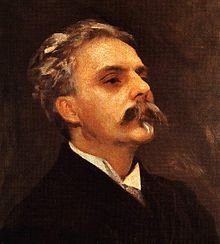
10 Compositions
Here are 10 of Fauré's works:
10. Barcolle no. 6 in E-Flat Major
This piece is absolutely beautiful. This piece accurately represents Gabriel Fauré's style as both a composer, and a pianist. It is complicated, yet still retains elegance in its musical structure. The first time I heard this piece, the girl before me in piano lessons was playing it. I actually heard her practicing it privately the other day (my teacher wasn't there, so she was using his piano). This piece is very relaxing (which is to be expected of Gabriel Fauré).

9. Violin Sonata no.1
I agree with what I wrote 6 months ago
I think this is (sic) Sonata sounds amazing not because of the complexity of the parts, but because of how well the parts can coexist, and still maintain a complex sound.
The theme that Fauré develops seemingly early sounds really nice. It sounds like sailing in a dream. I'd like to point out that even when Fauré's music seems to be harsh, he still manages to keep a reasonably firm grip on his unique style without sacrificing dynamics, which truly demonstrates his genius.

8. String Quartet opus 121
This piece definitely sounds gloomy. If you'll remember from earlier, Fauré began to feel depressed more and more as he got older. I wonder if this piece was him writing out his depression. It has a depressed sound, it is not purely evil like Dies Irae from Verdi's Requiem, and it's not extremely happy like Mozart's Eine Kleine Nachtmusik, it's somewhere in the middle.
7. Piano Quintet no. 1
This piece sounds like music that should be played during a flashback scene in a movie. It has a rather reflective story line sound. Perhaps this piece, came out of Fauré's depression as well. It does not sound cheerful, but rather remorseful. Yet, it still fits Fauré's overlying style of subtle yet strong.

6. Nocturne No. 6 in D flat
This piece is rather easy going. It is easy to listen to, and overall blends in as background (elevator music). That's not always a bad thing, sometimes in your face music is unattractive (like when trying to sell something). Either way, this is a beautiful piece that can be used on a sleep playlist, or a relaxing playlist.

5. Pavane
I have enjoyed this piece for a few months now. It is one of my favorite pieces by Fauré. As I have said before, I could see this as a folk song, or even a background theme to the Hobbit. It is detached throughout most of the piece with a few dramatic moments, similar to the Hobbit. This is the choral version, I have grown attached to it, and didn't even realize there was an instrumental version.

4.Sicilienne
This piece sounds rather sad, similar to the other pieces I have listened to thus far. It sounds similar to What Child is this?. The extent of my Fauré experience has been more happy music, so it is surprising to hear so much gloomy.

3. Apres un Reve
This piece sounds gloomy too! It sounds remorseful. It is interesting to know that Fauré was trained in religious music, how he veers away from writing religious music, and has so much instrumental music that doesn't seem to have anything to do with religion.

2. Cantique de Jean Racine
We sang this piece for choir. It wasn't until I heard the piano part that I realized how beautiful this piece can be. The title means Hymn of Jean Racine. It is peaceful, relaxing, and fits Fauré's usual style. He wrote this as a student!

1. Requiem
This piece is absolutely amazing to see live! My church choir performed it this year, and the whole time (watching) I had chills going down my spine. Fauré wrote this after his mother's death. His intake on a requiem was different than any other composer. Many composers made requiems sound angry, but Fauré took the meaning of requiem (rest), and made it peaceful.

Sources
Information
Wikipedia
Photos
Wikipedia
Previous Composer Birthdays (In order by how recent it was)
5/12 - Gabriel Faure
5/7 - Johannes Brahms
5/7 - Pyotr Ilyich Tchaikovsky
4/1 - Sergei Rachmaninoff
3/21 - Johann Sebastian Bach
3/4 - Antonio Vivaldi
3/1 - Frédérick Chopin
2/28 (29) - Gioachino Rossini
2/3 - Felix Mendelssohn
1/31 - Franz Schubert
1/27 - Wolfgang (Amadeus) Mozart
The Next Birthday will be Richard Wagner on May 22nd.
Thanks for reading this! Fauré is one of the most underappreciated composers of all time. His unique style, and beautiful sound definitely makes him great. Music would be a lot different without him in the picture. Please comment your favorite piece, and check back later (I'll be live streaming later)!

Also remember to check for: My weekly 7 post, As Well As My Composer Birthday Posts

